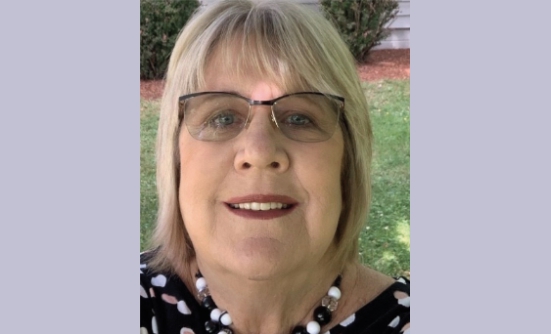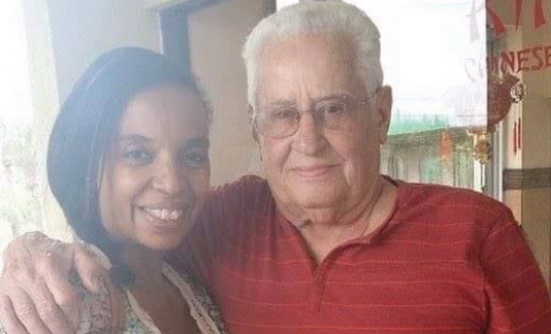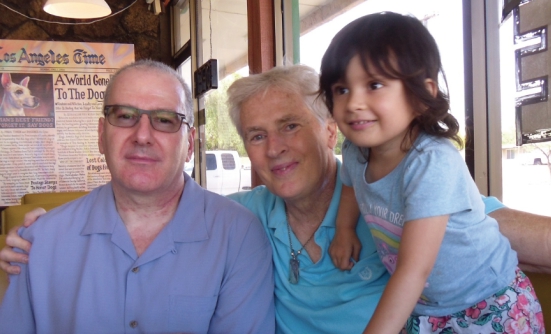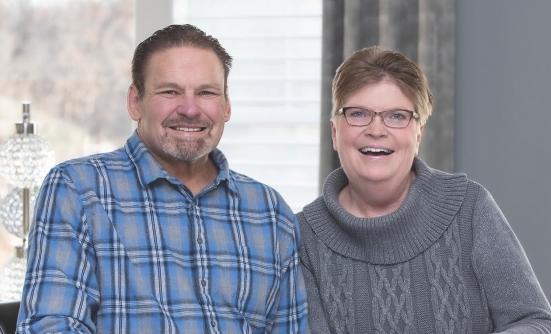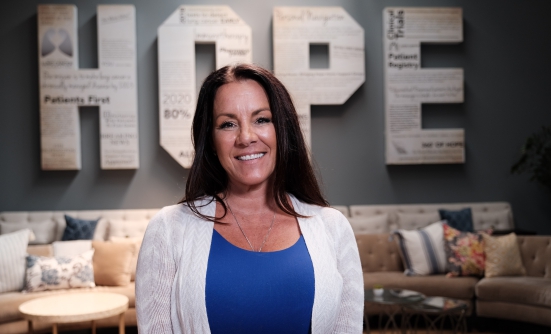Almost 15 years ago, I was launched into a new role, not by choice, mind you. My beloved husband of 25 years, Timothy, was diagnosed with an aggressive form of bladder cancer. We were busy working hard at managing our own business, spending time with our sons, ages 17 and 21, and serving in our church community when life took a twisted turn.
Even as a licensed mental health therapist, I had much to learn to be able to partner in the care of this man I so loved and treasured. While certainly not exhaustive, below are 10 tips I discovered then, and continue to value while working with patients with cancer and their care partners at Levine Cancer Institute of Atrium Health in Charlotte, North Carolina.
1. Two Sets of Eyes and Ears Are Better Than One
Being alongside your loved one for initial consultations, medical tests, chemo treatments, etc. can be invaluable. Even when you think you are listening intently, there will be times when each of you picked up on different pieces of information. The encounters with the medical team members can be emotionally overwhelming, so again, two sets of eyes and ears are better than one.
2. Figure Out How Much Is Too Much
Each patient has a different threshold for how much he or she wants to know about the cancer and the details of the treatment. Some patients want all the nitty- gritty details, because the absence of information increases fear. For others, they just want to trust their providers, not learn the details, but focus on enjoying everyday moments.
As a caregiver partner, you may want more details than the patient. Be sensitive to the patient and support whatever level of detail is best for him or her.
3. Maintain Normal Routines & Traditions as Much as Possible
Life doesn’t just stop because cancer enters the picture. Maintaining whatever normal activities, pleasant traditions, and other such things that were a part of your life before can feel comforting and help to keep hope alive when facing challenging news and treatments.
4. Speak Up
There will be times when your loved one will be weary, sad, or not have the energy to ask questions or speak up on his or her own behalf. You can be the patient’s best advocate, respectfully asking providers for information to help reduce symptoms or to connect to other supportive care services.
Don’t be shy; you know the patient and can help the providers do a better job of tailoring their care to meet the patient’s specific needs.
5. Work with Providers You Trust: Let Them Be the Experts
In this world of information overload, you will likely be bombarded with “sage” advice from friends, family, social media, and websites. Don’t get me wrong, I found much of this helpful. However, there is likely no substitute for the intense medical training and profound experience of the specialists who are tailoring treatment for your loved one.
Be careful not to get sucked into “snake oil” cures that may reduce the curative or palliative impact of the treatment that is prescribed by your licensed providers.
6. Lifestyle Factors Matter for Both of You
While facing cancer, healthy choices can make a huge difference in how you and the patient weather the treatment. Good nutrition, fresh air, exercise, rest, spending time with positive people, and meditation or prayer all become even more important during this time.
Realize that self-care is paramount and does not mean you are selfish! Intentional, regular self-care means filling your own cup, so you have something to “pour out” for your loved one. Take advantage of those golden moments when your loved one is sleeping or visiting with someone else to do something positive for yourself (read a book, take a walk or a hot bath, walk in the garden, work on a hobby, call a friend).
7. Make Time for Laughter: It Is Healing for Body and Soul
Some of our best memories came during my husband’s cancer treatment. We attended a class on laughter at a cancer center! Having friends over for pizza, watching comedies, or just laughing at ourselves added a lightness to the world while going through our cancer journey.
8. Practice Forgiveness, for Yourself and for Others
Facing a cancer diagnosis with your loved one may change the dynamics of your own relationship, as well as the relationships with others. Be kind to yourself, and be careful of your expectations of others. This is uncharted water for all involved.
There may be dear friends who pull away, not knowing what to say or do for both of you during this time. Other friends may surprise you and be there for you in a way you could not have anticipated you needed.
Be mindful of the energy it takes to “stay mad” or hold a grudge; it reduces your energy to express love, joy, and appreciation during this season of life. Forgiveness is best for you: it frees you to be there for your loved one, and to accept yourself.
9. Move Toward Those Hard Conversations
Depending on the severity of the cancer diagnosis, there may be some challenging topics that need to be addressed. Even with the highly curable cancers, the patient may have unspoken fears of death or suffering.
You can help to create an openness to discuss difficult topics by showing you are there, listening more than you speak. Accessing other helpers (such as a counselor, minister, or social worker) could also be beneficial. Being open and honest with one another can increase or maintain emotional intimacy during this time.
10. There’s Never Enough Time to Say “I Love You”
Even if you could be the best caregiving partner that ever walked the earth, there will likely be times when you wish you said or did something differently. Just as in other parts of life, perfection is not the goal. We grow through our experiences.
Our daily life demands, such as going to the store, preparing meals, house cleaning, continue even while being a caregiver.
It will never feel like there’s enough time or ways to say “I love you” if the time together runs out. Be loving to yourself, and know that your willingness to “walk beside” your loved one is a treasured gift.
Patient Resources
American Cancer Society
http://www.cancer.org/treatment/caregivers/if-youre-about-to-become-a-cancer-caregiver.html
American Society of Clinical Oncology
http://www.cancer.net/coping-with-cancer/caring-loved-one
National Cancer Institute
http://www.cancer.gov/about-cancer/coping/caregiver-support









